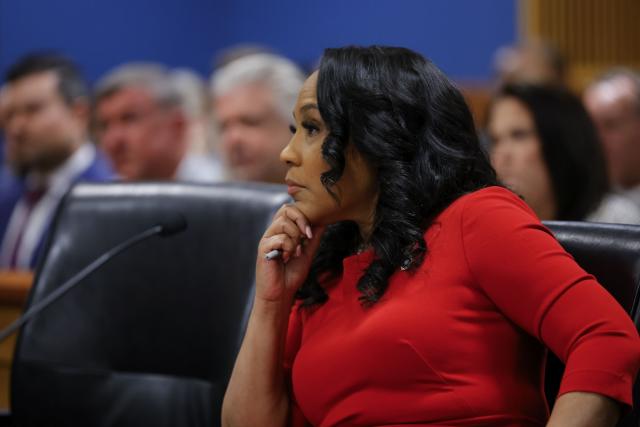As Netanyahu takes power in Israel, Biden warns that the US will only support a two state solution
On the heels of Benjamin Netanyahu's swearing-in as Israeli prime minister this week, President Joe Biden reaffirmed America's relationship with its long-term ally, while also cautioning that the administration remains committed to a two-state solution in the Middle East, as The Hill reports.
Biden's stance comes amid reports of concerns within the White House about Netanyahu's decision to align with multiple far-right groups in forming a hardline conservative coalition government to secure a victory in his country's November election.
“My friend for decades”
The White House issued a statement amid the Israeli leader's ascension to office in which Biden said, “I look forward to working with Prime Minister Netanyahu, who has been my friend for decades, to jointly address the many challenges and opportunities facing Israel and the Middle East region, including threats from Iran.”
Biden's statement noted that the administration “is working to promote a region that's increasingly integrated, prosperous, and secure, with benefits for all of its people,” adding that “we have worked with partners to promote this more hopeful vision of a region at peace, including between Israeli's and Palestinians.”
Toward the end of the statement, however, the president pointedly emphasized that “the United States will continue to support the two-state solution and to oppose policies that endanger its viability or contradict our mutual interests and values.”
High-level talks imminent
According to Axios, given the administration's wariness of the far-right politicians now integrated into Netanyahu's government, Biden will dispatch national security Adviser Jake Sullivan to Israel next month to get a sense of where things stand.
The outlet noted that the White House harbors particular concerns about policies the new government may attempt to impose in the occupied West Bank, such as settlement expansion and other measures thought by the administration to place the country's democracy in jeopardy.
Axios further reported that, according to Israeli officials, an official visit from Secretary of State Antony Blinken may follow close on the heels of Sullivan's talks with the Netanyahu government, pointing to the sense of urgency felt about the makeup of the coalition.
Qualified partnership
Blinken has also been somewhat measured in his tone with regard to the new Netanyahu government, attempting to strike a balance between expressing loyalty to a long-term international ally and advocating for policies on which consensus has long proved elusive.
Speaking in early December to left-leaning Jewish group J Street, Blinken pledged unwavering continued support for Israel, even while pushing objectives – such as a two-state solution to the Israel—Palestinian conflict – Netanyahu has long opposed, as PBS recently reported.
Blinken declared that America's partnership with Israel has “always been underwritten by the United States' ironclad commitment to Israel's security, a commitment that has never been stronger than it is today.”
He further suggested that the administration respected the “democratic choice of the Israeli people” and would work together with Netanyahu and officials in his government on the basis of policy, not personality, a thinly-veiled reference to Israeli Cabinet ministers known to hold strongly anti-Palestinian, anti-Arab views, and, as some have even suggested, "Jewish supremacist" philosophies.
The secretary of State added, however, that the U.S. would firmly stand in opposition to any Israeli policies thought to marginalize Palestinian interests, harm their “horizon for hope,” or hinder the chances of achieving a two-state resolution.
“It's a two-way street”
Despite the outward words of cooperation and acknowledgment of the longstanding bond between the U.S. and Israel, Politico reported separately that the Biden administration holds a healthy level of skepticism – and disdain – for the people with whom Netanyahu has surrounded himself and plans to hold the prime minister responsible for keeping them in check.
The outlet noted that the far-right nature of Netanyahu's incoming government served as primary topic of discussion at a recent meeting of National Security Council umbrella agencies, with an administration official declaring, “Everyone, without exception, understood that these guys are fundamentally different” from other conservative governments in Israel's past.
While some participants expressed doubts that pressure on Netanyahu from Washington will promote American priorities, with Khaled Elgingy of the Middle East Institute opining that the prime minister will use the extremists in his government “as cover” by essentially saying, “'If you don't like what's happening now, you should see what I stopped the crazies from doing,” others were not so sure.
Another official pointed out that Netanyahu will still rely on U.S. backing to further his own priorities, including expansion of the Abraham Accords with Arab states and greater resistance to the ambitions of the Iranian government, neither of which will likely materialize without support from D.C.
In the estimation of that particular American official, “Netanyahu wants a bunch of stuff from us. It's a two-way street. … We'll work with him on the things he cares about, and he'll work on the things we care about,” but precisely how much give-and-take with the Biden administration is actually on the cards, only time will tell.






